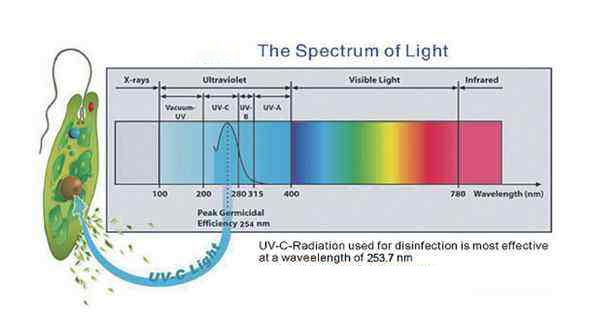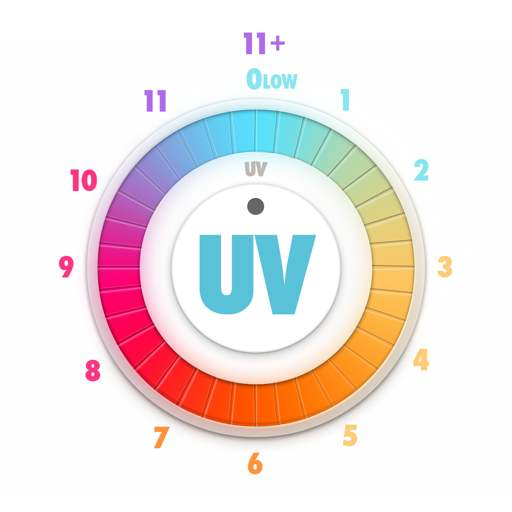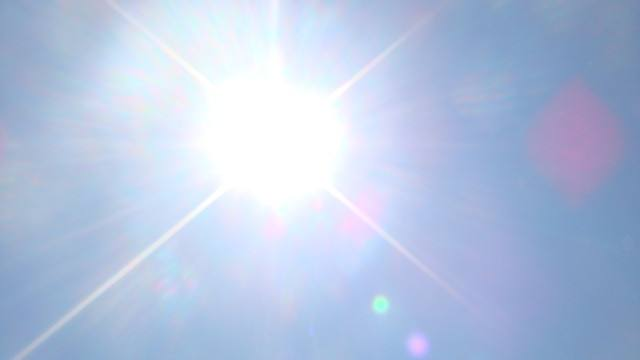According to foreign media reports, Dan Arnold works for Ultraviolet Technology, a company that provides disinfection equipment to hospitals, pharmaceutical companies and food manufacturers across the UK. With the global novel coronavirus crisis heating up, whether ultraviolet rays can kill novel coronavirus has also become a hot topic. Recently, Arnold received some unusual advice, many people asked: can ultraviolet rays kill novel coronavirus?

Arnold said that only one kind of ultraviolet light can kill novel coronavirus, but the process is very dangerous and poses a serious threat to human health. Someone once asked why we didn't install an ultraviolet lamp at the entrance of the supermarket. Customers can play the role of sterilization and disinfection when they stand under the ultraviolet light for a few seconds and then go in. I do not support such a proposal.
The idea of using ultraviolet light to disinfect skin, clothes or other objects has proved to be very popular in a flood of "health advice" on the Internet. It is said that a university in Thailand has even built an ultraviolet channel through which students can be disinfected.
So, is it a good way to kill novel coronavirus with ultraviolet light? Is it true that novel coronavirus hates the sun and the sun will kill it immediately? To put it simply, this view is wrong.
Dangerous ultraviolet rays.

Sunlight contains three kinds of ultraviolet rays, the first is long-wave ultraviolet (UVA), which is the vast majority of radiation from the sun that reaches the earth's surface and can penetrate deep into the skin. It is believed to be 80% of the causes of skin aging, causing wrinkles and age spots.
The second is medium-wave ultraviolet (UVB), which destroys DNA, in the skin and causes sunburn, which eventually leads to skin cancer. Long-wave ultraviolet and medium-wave ultraviolet rays are well known to be harmful to people, and most good quality sunscreens can resist these two kinds of ultraviolet rays.
The third is short-wave ultraviolet (UVC), a relatively blurred part of the spectrum, made up of shorter, more energetic light wavelengths that are particularly good at destroying genetic material, whether in humans or virions. Fortunately, most of us are unlikely to be exposed to short-wave ultraviolet rays, which are filtered by the ozone layer in the earth's atmosphere long before they reach human skin.
In fact, at least scientists have found that the use of short-wave ultraviolet rays can kill some microbes. Since the discovery of short-wave ultraviolet rays in 1878, artificial short-wave ultraviolet rays have become a major method of disinfection. Used in daily disinfection facilities in hospitals, airplanes, offices and factories. Crucially, short-wave ultraviolet can be used for drinking water disinfection, and some parasites are resistant to chemical disinfectants such as chlorine, so the germicidal effect of short-wave ultraviolet is more effective.
Although there have been no specific studies on how shortwave UV affects novel coronavirus, studies have shown that it can be used to treat other coronaviruses, such as SARS virus. Ultraviolet radiation distorts the structure of their genetic material and prevents virions from replicating.
Therefore, some countries now use high-dose short-wave ultraviolet rays to sterilize novel coronavirus, some buses are exposed to blue short-wave ultraviolet rays, and robots that emit short-wave ultraviolet rays are responsible for cleaning the floor in hospitals. Banks have been using short-wave ultraviolet lamps to disinfect coins for many years.
At the same time, the seller of ultraviolet equipment suppliers has also set a new record, and some suppliers have increased production in order to meet orders. Arnold said that ultraviolet technology is now used in all disinfection equipment.
An important warning!
Arnold said: "short-wave ultraviolet is really annoying, people should not touch it, if exposed to UVB for a few hours to sunburn, then short-wave ultraviolet can sunburn the body in a few seconds, if your eyes are exposed to the sun," do you know what it's like to stare at the sun? It only takes a few seconds to cause serious damage to the eyes. "
In order to safely use short-wave ultraviolet rays, people usually need to receive professional training to operate the relevant equipment correctly.
Can sunshine kill novel coronavirus?
Do medium-wave and long-wave ultraviolet rays have germicidal efficacy? If it has an effect similar to that of short-wave ultraviolet, does it mean that people can put substances containing viruses to sterilize in the sun?

The simple answer is: it is possible, but people cannot rely on this method. Sunlight has become a popular method of sterilizing water in developing countries, and the World Health Organization (WHO) even recommends the use of sunlight disinfectant. The technique, which involves pouring water into a transparent glass or plastic bottle and then drying it in the sun for six hours, is considered effective. Because long-wave ultraviolet rays in sunlight react with dissolved oxygen to produce unstable molecules, such as hydrogen peroxide, the active ingredients of many household disinfectants can destroy pathogens.
Sunlight does not react with water and can still be used for surface disinfection, which may last longer than you think. The problem is that we don't know how long it will last, because scientists' research on novel coronavirus is still in its infancy. A study of SARS, a close relative of novel coronavirus, found that exposure to UVB for 15 minutes had no effect on its infectivity, but the researchers did not expose SARS to UVB, which is known to cause more damage to genetic material.
On the contrary, other viruses may provide some important clues, such as influenza. When scientists analyzed hospitalization records in Brazil, they found a sharp increase in flu cases during the wildfire season, speculating that more smoke from forest fires reduced the concentration of ultraviolet rays in the sun.
Another study shows that the longer influenza particles are exposed to the sun and the higher the concentration, the less likely they are to remain contagious. The study looked at influenza virus particles suspended in the air, not attached to the surface of the object.
The above studies show that the effect of using sunlight to disinfect the surface of objects is not obvious. First of all, it is not clear how long it will take ultraviolet radiation to inactivate novel coronavirus, and no one knows how much dose is needed. Even if they do, the UV dose in the sun will vary according to the time of day, weather, season, and latitude of people's lives, so this is not a reliable method of effective sterilization.
In the end, it goes without saying that the use of any kind of ultraviolet radiation to disinfect human skin will cause damage and increase the risk of skin cancer. Once the virus enters the body, no amount of ultraviolet rays will have any effect on whether you are infected or not.
 online service
online service 0086-591-8806 9579
0086-591-8806 9579 88067049
88067049 izzy@lexinda.com
izzy@lexinda.com sarahlpr
sarahlpr 86-15336506363
86-15336506363